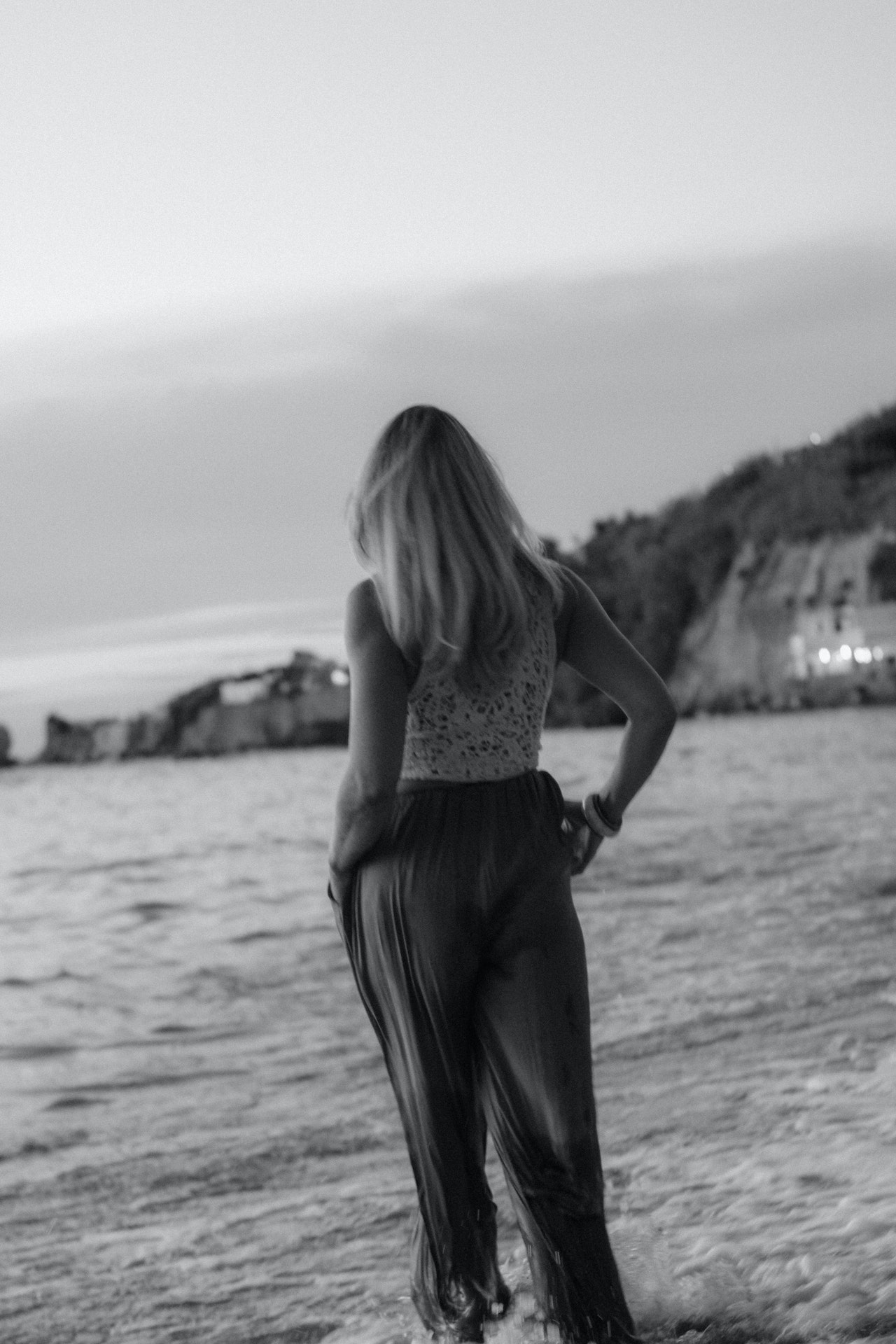
I’ve been maneuvering through a series of transitions for the past seven years.
Like anyone, I resented or resisted each one.
Though transitions are relatively short moments in time during our long lives, they ignite major turning points, beginnings and ends, forks in the road.
Transitions often are the things we want to avoid—the loss of a job or end of a relationship. Even welcome transitions like marriage or new parenthood carry some measure of distress.
Whether longed for or mourned for, transitions inevitably bring dark nights. Comfortable and known roles, attachments, and identities depart with transitions.
In the void, confusion and unrest remain.
Last month marked the seven-year anniversary of a major transition cycle for me, one of the most intense and impacting in my life.
A career-peak job ended in 2016 after nearly 17 years, bringing a new direction as a sole proprietor. I traded the identity comforts of a title, team to lead, and company stature for the sometimes lonely road of consultancy.
This choice in career direction was predicated by a desire to be more present in my teenage children’s lives, only to have those lives move across the country for college a few years later.
Navigating this new decentralized and hands-off parenting chapter may be the toughest transition of any during this period.
Amid career and parenting transitions, my body began to morph into an unfamiliar container, with a lock for which I no longer knew the combination. Patchy sleep and low energy drained me. My body feels like an alien on many days.
Of course, the colossal and life-altering experience that we collectively faced in transitioning into and out of a global pandemic has made some level of fear, grief, or general dissonance a constant current in our cultural and personal narratives over the last few years.
Topping off this transitory period has been the beginning stages of witnessing and supporting aging parents as they face the physical, social, and emotional changes that come with moving into their later years.
I had been an adult child who regularly connected with parents in another state but didn’t worry about the time that passed between visits and calls. I now wrestle with my role as they face new challenges.
Most of these transitions aren’t ones to wish upon the stars. Yet, what I’ve come to realize amid all of the change is that transitions are birthing something bigger.
Transitions ignite transformation.
And, above all, transformation is what we are born to do. It is the organic, constant, and desired state of being for the human experience.
If only I had crystallized these realizations in previous chapters:
1. We live a good portion of our lives stuck in traffic.
Is it a need for connection or the desire to be valued that most drives the human passion to give more credence to what others think, societal norms, and institutional ways of being than our own inner knowing and voices?
We get mesmerized into a reality defined by the dialog of our family and friend circles, the airwaves we consume, and the establishment culture of the institutions we join through work, school, spiritual, or other communal spaces. All around us, the constant hum of these vehicles, carrying their ideas, agendas, and values, bottlenecks our connection to self and ultimately, the ability to hear the quiet whispers that want to lead us to our right paths.
Thus, we stay in the patterns carved at an early age and the ways that enabled us to navigate a strange or harsh world. For some, it’s pleasing, rescuing, or controlling others to stay safe. For others, it’s escaping in vices, brands, acquisitions, titles, and other culturally defined benchmarks.
Regardless of the coping mechanism, our focus is on the other and the outside, not the soft whisper of yearning or guidance inside. We don’t see the signs speaking to us, the gifts of divine guidance dropped as crumbs to explore and follow to our right or best paths.
We lose our connection to self and stay stuck in the traffic we created.
2. Transitions jolt us out of the lanes we drove in and put us on unfamiliar paths.
We would do anything to get off this new road—but it’s exactly where we are meant to be.
In transitions, we fall away from the way things were. In the descent, we can get stuck in the low.
We overidentify with the fallout from the transition because we desperately crave the old road with its recognizable traffic. We look for the same type of job or familiar companion. We want the safety and security of the known landscape.
In this state, transition is a burden, a loss. We are victims of something bad and unwanted. We do not see the transformation that wants to come from this transition.
For years before my 16-year job ended, I ignored discontent. It took a layoff, gratefully preceded by work with amazing coaches and healers who helped pad the fall, to finally hear the voice inside trying to speak. I was too focused on the lane I was in—a defined career path that afforded modest success and the ability to be juggling mother and provider—to listen.
The jolt of the unplanned job transition brought the dark night. I clung to old ideals for success and fulfillment. My identity was angry at the off-ramp it was put on.
For every other transition during this period, I have experienced the same resistance, holding on to old ways of being and familiar roads to comfort.
So often in transitions, we are unable to take the curves. We stay stuck, slammed against the wall at its deepest arc. Our ego’s needs, wants, and desires keep spinning by, and we grasp for them. We remain firmly embedded in that wall, waiting for everything to get back to the way it was and the familiar traffic to return.
We are in the space between stories, the holding pattern that bridges one destination to the next. We are caught in a transition that is nowhere near its apex.
We want off this road and back onto our familiar path.
But what happens when we see the old road as a path we have out-driven and out-lasted? What if this unfamiliar road is the most precious place we can be, even in its darkness and ambiguity? What if it is the place where magic happens?
I have come to see that feeling into, and not fighting, the darkness of transitions is the only way to be led to a new destination. We must trust in the new life that the darkness is trying to form.
3. When we realize the opportunity of a transition is transformation, we are on a new highway and on our way to finding a higher road.
Transitions shake us out of the mind’s grasping and the patterns we’ve created. The invitation is to access something more primal, the essence we placed under a rock somewhere along our journeys.
Over the past seven years, I found many forms of guidance through coaching, programs and classes, and a variety of books to help navigate the transitions. While all have been infinitely valuable, the most important thing I learned through these outside sources is how to listen inside to the voice that had been speaking, maybe screaming, all along—the quiet one deep in the core saying become the next, become who you are meant to be now.
Most of the time, we block this voice. The resistance to embracing the whispers that want to change us is strong, a force of inertia that has the will of a crying toddler who won’t let go of her broken toy.
To transform, we must embrace and feel the tears of loss and darkness, then let the beaten and battered toy go.
We must realize we all have a way of receiving guidance, a deep wisdom and guiding light that lives within each of us. We must use this guidance as confidence and direction to create new mindsets with new actions that cause the old patterns and identities to fall away.
I think the resistance to change ourselves, to use transitions as transformation to a higher or new way of being, is so great because of the traffic that we invited into our lanes. We have cut ourselves off from the intuitive and creative gifts that are our core. Society and culture are in the driver’s seat. That soft and steady voice of inner knowing, balance, and alignment was put in the trunk a long time ago.
In this process, I have learned that the dark brought by difficult transitions is the place where we can find the very thing we need to grow, if we embrace the lull and listen. It is the space where something new and unimaginable is forming.
In the void after disruption, I began to hear and listen to the voice. As a start, it said learn to ride a horse, try your hand at playing guitar, dig further into piano. The squelched inner child who longed to do these things for no other purpose than their experiences and enjoyment got some air.
In this lull before action was ready to form, I found my intuition—the energetic connections that run through my body, how they speak to me, and how I can find guidance and wisdom that doesn’t come through the clouded and crowded mind.
I came to know that I am a seeker and opened my eyes to roads that traffic previously clogged from view. It is in this space that I finally found my way to a page to write.
These past seven years of transitions fueled introspection and exploration that brought a fountain of new discoveries, but I still do not know where they will lead.
What I have come to know is that we must honor the unfamiliar and empty new roads of transition because they lead to places that cannot be fathomed otherwise.
I have come to see transitions as gifts for transformation and that when we resist this natural cycle of transformation, we get stuck and flounder.
I have come to know that continual transformation, with its alchemy of darkness and light, is our most natural state of being.
~
Please consider Boosting our authors’ articles in their first week to help them win Elephant’s Ecosystem so they can get paid and write more.











Read 12 comments and reply